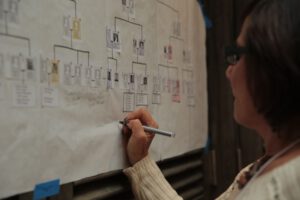If you don’t know much about history, or more specifically your family health history, you should take some time to learn it because it is so important for managing your health.

Family health history is often the cornerstone of every medical record. It adds another dimension to your health profile, and it gives your doctor —and you — information to use to assist in your wellbeing.
What You Don’t Know
But many people often don’t know much beyond their own parents’ health, and some of us, particularly those who were adopted, might not even have that information. We might not know what our uncles or aunts or grandparents died from.
We may have no idea of the health conditions that they lived with. But knowing this information offers important insights into our own health.
That’s because just as genetic information from your 23andMe results can alert you to a previously unknown health risk, your family history, can also tell you a bit more about conditions you may have inherited from the generations that came before you.
Looking Back to See Future Risks
Serious health conditions are sometimes run through families, sometimes skipping a generation or two. It helps to document some of the conditions that the relatives in our family tree faced to better understand our own health risks
While most people know that this information can be critical to their health, many people either do not know or have never tried to document this information. More than a decade ago, the U.S. Surgeon General kicked off an effort to change that by instituting National Family History Day.
“Family history can identify people at high risk for many common diseases,” said Muin J Khoury, the Director, Office of Public Health Genomics, Centers for Disease, in a blog post last year. “In many cases, having at least one first-degree relative (parent, sibling or child) for some diseases doubles the person’s risk for the same disease. The risk is even higher if there are several affected relatives in the family, and affected relatives develop the disease at an early age.”
The Holiday
Because Thanksgiving is such a family-centric holiday, each year since 2004, the national holiday has doubled as a day not just to eat turkey and pie, but to talk to family and attempt to document health history.
To make it easier for families, the surgeon general even set up a simple and shareable tool for families to document their own health history called My Family Health Portrait. It allows you and your family members to create a family tree, write down health conditions and together create a powerful document to help you manage your health.
Knowing and acting on your family health history can prove life-saving in your own health.




